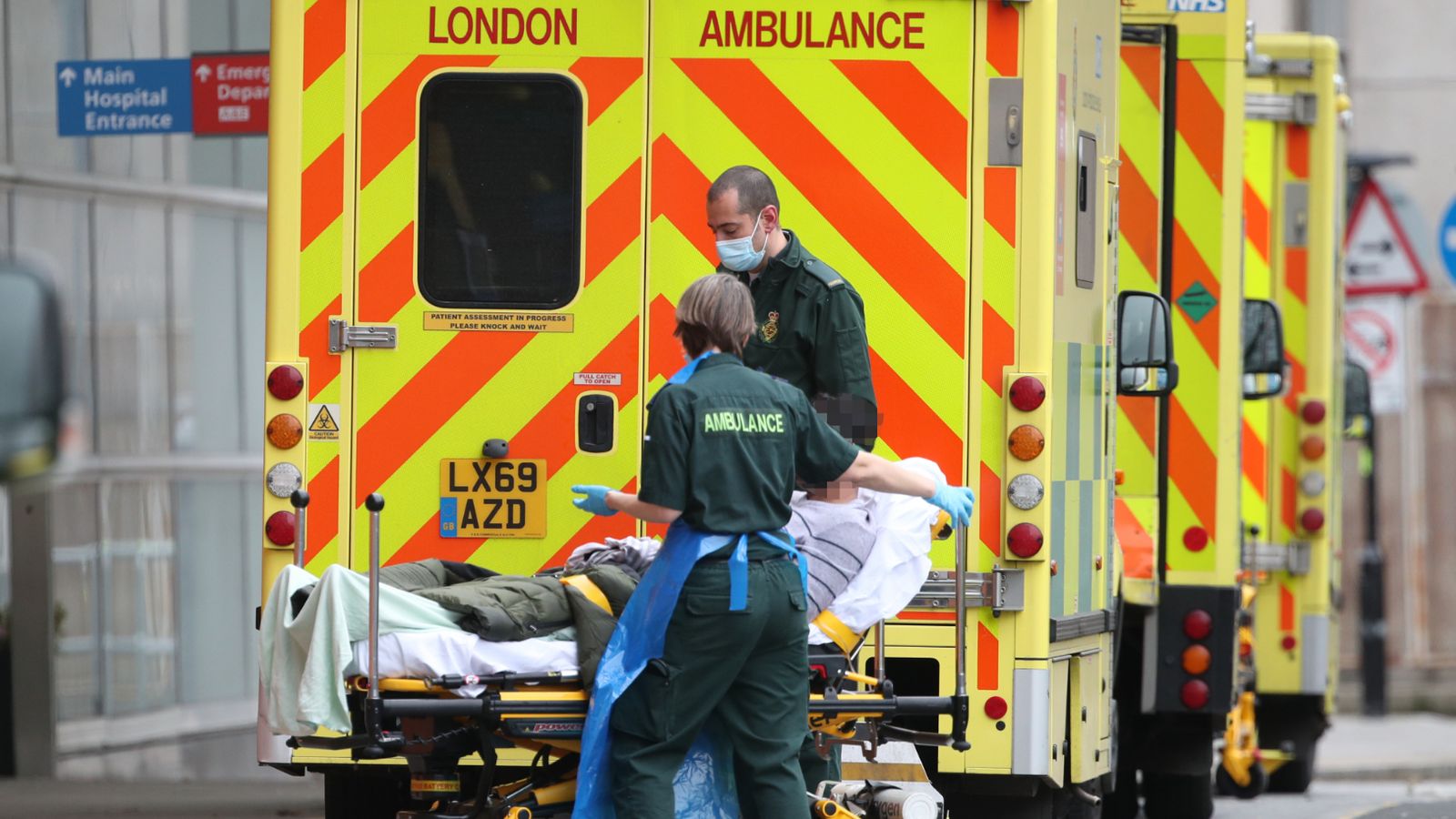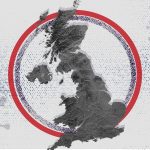A total of 7,320 deaths registered in England and Wales in the week ending 5 February mentioned coronavirus on the death certificate, according to new data.
The figure from the Office for National Statistics (ONS) is down 13% from 8,433 deaths in the week to January 29 – the first fall since Christmas.
Some 42.6% of all deaths registered in England and Wales in the week to 5 February mentioned COVID-19 on the death certificate – the third highest proportion recorded during the pandemic.
Of the 7,320 deaths linked to coronavirus, the disease was the underlying cause of death in 89.1% of them.
By comparison, of the 4,993 deaths that involved influenza and pneumonia, those illness were the underlying cause of death in only 6.1% of those deaths.
Deaths involving coronavirus declined in all regions, with southeast England reporting the largest decrease.
But the number of deaths from all causes across all English regions remains above their five-year average: the highest seen in London at 69.8%, compared to 10.7% in Yorkshire and the Humber.
There has also been a rise in the number of people with antibodies for the virus that causes COVID-19, indicating they have either been infected with the disease or had a vaccine.
One in five people in England have antibodies, the ONS found.
That ratio rises to one in seven in Wales and Northern Ireland, and an estimated one in nine in Scotland.
Older people were more likely to have antibodies in England.
But in Scotland, Wales and Northern Ireland the highest rates were seen among younger adults.
Esther Sutherland, principal statistician at the ONS, said: “Antibody positivity rates have increased across all four nations and the effects of the vaccination programmes have begun to appear, especially in the older age groups.”
So far more than 15 million people have had a coronavirus vaccine, with the UK government saying everyone in the top four priority groups has now been offered a jab.
The next target is for all remaining five priority groups to be offered a vaccine by the end of April, then all remaining adults in the UK reached by autumn.
Prime Minister Boris Johnson will next Monday announce a planned roadmap out of lockdown, where he said he hopes to be able to let schools reopen from 8 March.
He revealed on Monday that he wants the current lockdown to be the last – and for the unlocking to be “irreversible”.
Data to be taken into consideration will include coronavirus case numbers, hospital admissions, deaths and the impact of the vaccine rollout.






















